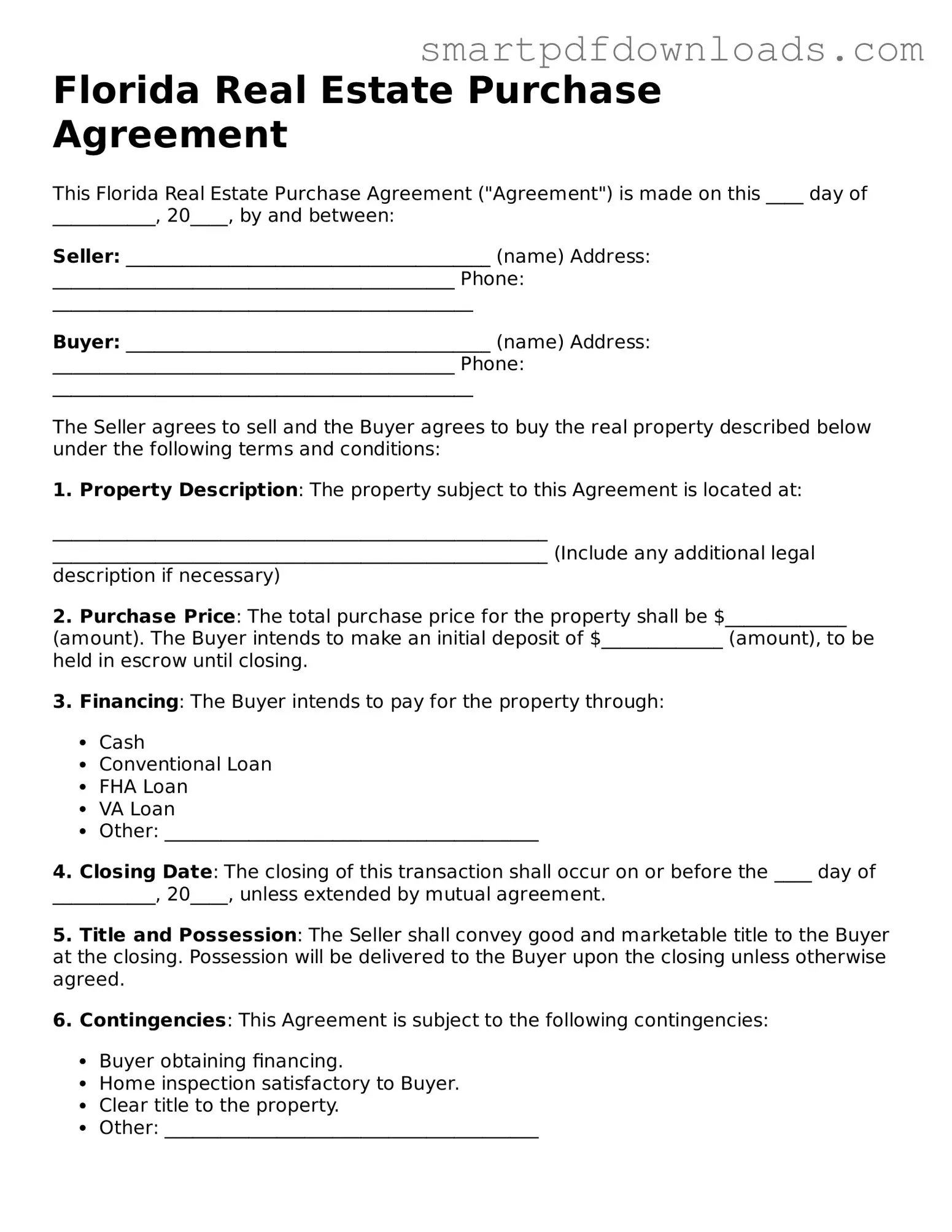Legal Real Estate Purchase Agreement Form for the State of Florida
The Florida Real Estate Purchase Agreement is a legal document that outlines the terms and conditions for the sale of real property in Florida. This form serves as a crucial tool for both buyers and sellers, ensuring that all parties understand their rights and obligations throughout the transaction. Understanding this agreement can help facilitate a smoother real estate process.
Edit Real Estate Purchase Agreement Online

Legal Real Estate Purchase Agreement Form for the State of Florida
Edit Real Estate Purchase Agreement Online

Edit Real Estate Purchase Agreement Online
or
⇓ PDF File
Finish the form and move on
Edit Real Estate Purchase Agreement online fast, without printing.